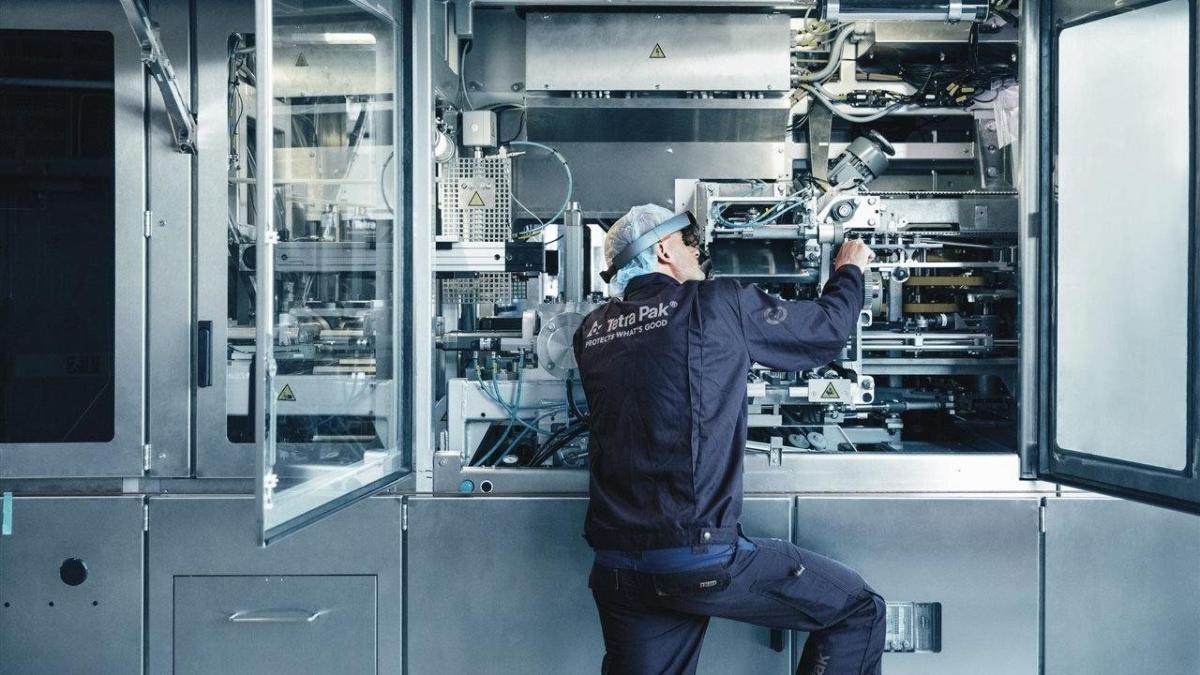4 Expert Tips To Maximize Your Processing Facility’s Performance

Manufacturers face numerous challenges, from meeting regulations to handling equipment breakdowns and more. There's no shortage of variables that cause logistical nightmares - losing companies money for every minute of downtime. According to a recent industry report by Deloitte, unplanned downtime alone can cost manufacturers an estimated $50 billion each year.
"Uptime is the name of the game in all types of production, including food and beverage manufacturing," said Vic Stockman, vice president of Services, Tetra Pak U.S. and Canada, a world leading food processing and packaging company. "So it's vital to prevent unwanted breakdowns, before unplanned downtime affects your bottom line."
In today's strained labor market, Stockman stressed two elements for operations to run as efficiently and sustainably as possible: providing the right training and knowing when you need outside support.
Here are his tips for boosting any operation's performance, uptime and profits.
1. Manage maintenance
Although preventive maintenance is key to avoiding equipment failure, it's challenging to stick to recommended maintenance intervals while following demanding production schedules. For that reason, he advises using experienced technicians so maintenance is done right the first time - reducing unwanted downtime.
"Plants can also consider World Class Manufacturing (WCM) approaches to optimize maintenance intervals, and explore other areas of improvement," added Stockman. "At Tetra Pak, we used what we've learned from decades of experience in our WCM packaging material factories and share those insights with our food and beverage customers."
Predictive maintenance is another great tool to maximize your processing equipment: Condition monitors report how the equipment is running to predict failures before they occur, so plants aren't performing maintenance until it's needed.
2. Optimize internal staff
Another vital aspect to efficient production is operator training, which ensures equipment is used properly. This is especially important during high staff turnover. If someone doesn't have the right skills or training, it's easier for them to replace many working components instead of properly diagnosing the root cause to a specific broken part or component - leading to additional downtime and increased need for parts that did not have to be replaced.
Having an on-site engineer can alleviate this issue. "Our on-site engineers tell us customers experience about a 25% reduction in unnecessary consumption of spare parts," said Stockman. "Plant operators also have the opportunity to learn from on-site engineers, which ensures consistency during staffing changes."
3. Improve procedures
Plants can also re-assess operating procedures to minimize downtime. Using the correct steps for maintenance, spare parts, cleaning intervals and more is crucial for consistent operations.
An outside consultant can evaluate how existing procedures are being executed and identify areas for improvement. For example, if a plant is experiencing a high rate of shrinkage, they may suggest more training in a certain area, pinpoint where a new sensor may improve outcomes - or another custom solution based on their observations.
Even the performance of a brand-new line can be enhanced with superior expertise and training. "One Tetra Pak customer with several brand-new lines increased uptime by 20% with better operator training," Stockman said. "We made sure our customer's operational team was well trained and understood how to react to different scenarios - and how to properly plan and sequence operations. For example, they staggered activities so peak utilities usage didn't negatively impact multiple pieces of equipment."
4. Tap outside expertise
To improve processes, consider remote support for your on-site team from an outside expert (who could be virtually anywhere) to discover the best solutions, with minimal downtime.
On-site employees can consult with experts who may better understand the problem and suggest next steps, which alleviates downtime in two ways: First, since the remote support engineer needs no travel time, they can "be there" quickly. Second, the remote expert can use their expertise, assess the problem with fresh eyes and suggest efficient solutions.
"With Tetra Pak's remote support customers, about 90% of the issues we're diagnosing are related to run settings and not the components, while less experienced staff may replace the many components instead of adjusting an incorrect setting," explained Stockman. "It really pays to have this expertise at your fingertips."
While these tips help your facility get the most value by producing as much as possible, they also make your plant run more sustainably. Minimizing lost product means less waste, running more efficiently means using fewer utilities to achieve the same goal, and cleaning less means saving chemicals and reducing water use.
"You can increase uptime and output with the right resources and mindset," Stockman said. "By ensuring your employees are well trained, have the right tools - and can consult outside resources when needed - you'll have the best expertise available to solve current issues and prevent unplanned downtime."
To learn more about optimizing manufacturing operations, visit https://www.tetrapak.com/en-us/solutions/services.

